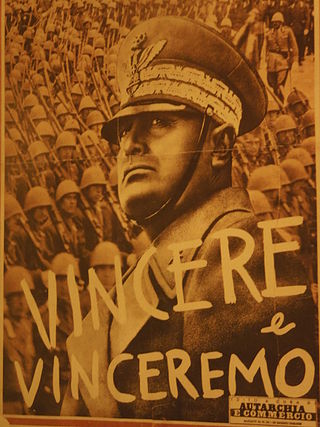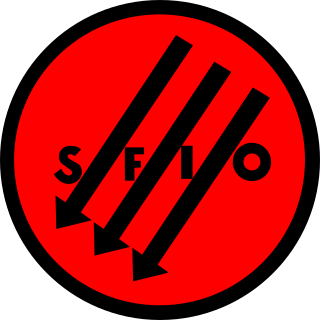
The Popular Front was an electoral alliance and pact formed in January 1936 to contest that year's general election by various left-wing political organizations during the Second Spanish Republic. The alliance was led by Manuel Azaña. In Catalonia and the modern-day Valencian Community, the coalition was known as the Front of the Lefts.
New Right is a term for various right-wing political groups or policies in different countries during different periods. One prominent usage was to describe the emergence of certain Eastern European parties after the collapse of the Soviet Union. In the United States, the Second New Right campaigned against abortion, LGBT civil rights, the Equal Rights Amendment (ERA), the Panama Canal Treaty, affirmative action, and most forms of taxation.

The Radical Party, officially the Republican, Radical and Radical-Socialist Party, is a liberal and social-liberal political party in France. Since 1971, to prevent confusion with the Radical Party of the Left (PRG), it has also been referred to as Parti radical valoisien, after its headquarters on the rue de Valois. The party's name has been variously abbreviated to PRRRS, Rad, PR and PRV. Founded in 1901, the PR is the oldest active political party in France.
This article gives an overview of liberalism and radicalism in Bulgaria. It is limited to liberal and radical parties with substantial support, mainly proved by having had a representation in parliament. The sign ⇒ denotes another party in that scheme. For inclusion in this scheme it is not necessary that parties label themselves as a liberal party.
The Third Position is a set of neo-fascist political ideologies that were first described in Western Europe following the Second World War. Developed in the context of the Cold War, it developed its name through the claim that it represented a third position between the capitalism of the Western Bloc and the communism of the Eastern Bloc.
The Cartel of the Left was the name of the governmental alliance between the Radical-Socialist Party, the socialist French Section of the Workers' International (SFIO), and other smaller left-republican parties that formed on two occasions in 1924 to 1926 and in 1932 to 1933. The Cartel des gauches twice won general elections, in 1924 and in 1932. The first Cartel was led by Radical-Socialist Édouard Herriot, but the second was weakened by parliamentary instability and was without one clear leader. Following the 6 February 1934 crisis, President of the Council Édouard Daladier had to resign, and a new Union Nationale coalition, led by the right-wing Radical Gaston Doumergue, took power.

Radicalism was a political movement representing the leftward flank of liberalism between the late 18th and early 20th century. Certain aspects of the movement were precursors to modern-day movements such as social liberalism, social democracy, civil libertarianism, and modern progressivism. This ideology is commonly referred to as "radicalism" but is sometimes referred to as radical liberalism, or classical radicalism, to distinguish it from radical politics. Its earliest beginnings are to be found during the English Civil War with the Levellers and later the Radical Whigs.

The history of fascist ideology is long and it draws on many sources. Fascists took inspiration from sources as ancient as the Spartans for their focus on racial purity and their emphasis on rule by an elite minority. Fascism has also been connected to the ideals of Plato, though there are key differences between the two. Fascism styled itself as the ideological successor to Rome, particularly the Roman Empire. From the same era, Georg Wilhelm Friedrich Hegel's view on the absolute authority of the state also strongly influenced fascist thinking. The French Revolution was a major influence insofar as the Nazis saw themselves as fighting back against many of the ideas which it brought to prominence, especially liberalism, liberal democracy and racial equality, whereas on the other hand, fascism drew heavily on the revolutionary ideal of nationalism. The prejudice of a "high and noble" Aryan culture as opposed to a "parasitic" Semitic culture was core to Nazi racial views, while other early forms of fascism concerned themselves with non-racialized conceptions of the nation.
The Democratic Alliance, originally called Democratic Republican Alliance, was a French political party created in 1901 by followers of Léon Gambetta such as Raymond Poincaré, who would be president of the Council in the 1920s. The party was originally formed as a centre-left gathering of moderate liberals, independent Radicals who rejected the new left-leaning Radical-Socialist Party, and Opportunist Republicans, situated at the political centre and to the right of the newly formed Radical-Socialist Party. However, after World War I and the parliamentary disappearance of monarchists and Bonapartists it quickly became the main centre-right party of the Third Republic. It was part of the National Bloc right-wing coalition which won the elections after the end of the war. The ARD successively took the name "Democratic Republican Party", and then "Social and Republican Democratic Party", before becoming again the AD.
The Rally of Republican Lefts was an electoral alliance during the French Fourth Republic which contested elections from June 1946 to the 1956 French legislative election. It was composed of the Radical Party, the Independent Radicals, the Democratic and Socialist Union of the Resistance (UDSR) and several conservative groups. Headed by Jean-Paul David, founder of the anti-Communist movement Paix et Liberté, it was in fact a right-of-center conservative coalition, which presented candidates to the June 1946, November 1946, and 1951 legislative elections.

Right-wing populism, also called national populism and right populism, is a political ideology that combines right-wing politics with populist rhetoric and themes. Its rhetoric employs anti-elitist sentiments, opposition to the Establishment, and speaking to or for the "common people". Recurring themes of right-wing populists include neo-nationalism, social conservatism, economic nationalism and fiscal conservatism. Frequently, they aim to defend a national culture, identity, and economy against perceived attacks by outsiders. Right-wing populism has associations with authoritarianism, while some far right-wing populists draw comparisons to fascism.

Legislative elections were held in France on 16 and 30 November 1919, the first after World War I.
Left-wing nationalism or leftist nationalism is a form of nationalism which is based upon national self-determination, popular sovereignty, and left-wing political positions such as social equality. Left-wing nationalism can also include anti-imperialism and national liberation movements. Left-wing nationalism often stands in contrast to right-wing politics and right-wing nationalism.

Auguste Marie Joseph Jean Léon Jaurès, commonly referred to as Jean Jaurès, was a French socialist leader. Initially a Moderate Republican, he later became a social democrat and one of the first possibilists and in 1902 the leader of the French Socialist Party, which opposed Jules Guesde's revolutionary Socialist Party of France. The two parties merged in 1905 in the French Section of the Workers' International (SFIO). An antimilitarist, he was assassinated in 1914 at the outbreak of World War I but remains one of the main historical figures of the French Left. As a heterodox Marxist, Jaurès rejected the concept of the dictatorship of the proletariat and tried to conciliate idealism and materialism, individualism and collectivism, democracy and class struggle, and patriotism and internationalism.

National Bolshevism, whose supporters are known as National Bolsheviks and colloquially as Nazbols, is a syncretic political movement committed to combining ultranationalism and Bolshevik communism.

The French Left refers to communist, socialist, social democratic, democratic socialist, and anarchist political forces in France. The term originates from the National Assembly of 1789, where supporters of the revolution were seated on the left of the assembly. During the 1800s, left largely meant support for the Republic, whereas right largely meant support for the monarchy.

A popular front is "any coalition of working-class and middle-class parties", including liberal and social democratic ones, "united for the defense of democratic forms" against "a presumed Fascist assault". More generally, it is "a coalition especially of leftist political parties against a common opponent". However, other alliances such as the Popular Front of India have used the term, and not all leftist or anti-fascist coalitions use the term "popular front".

The French Section of the Workers' International was a major socialist political party in France which was founded in 1905 and succeeded in 1969 by the present Socialist Party.










